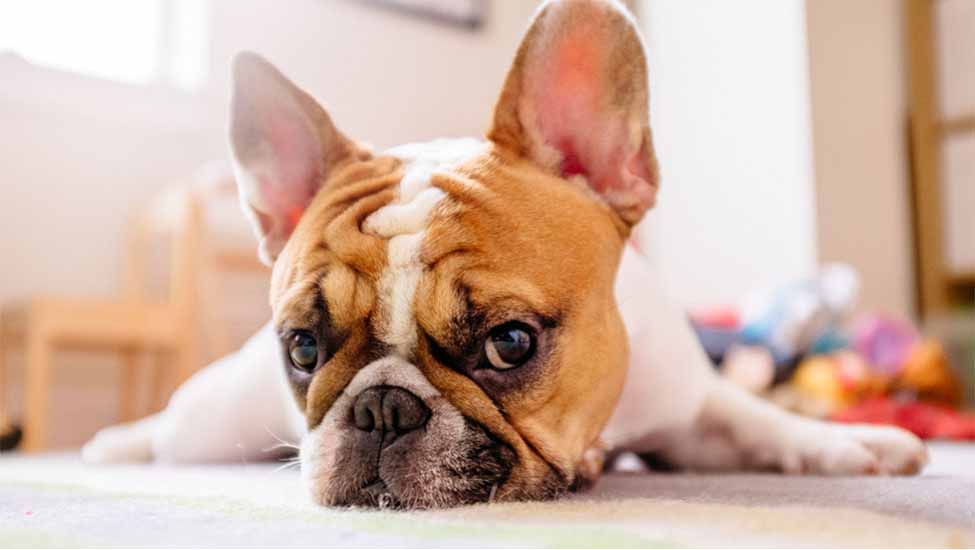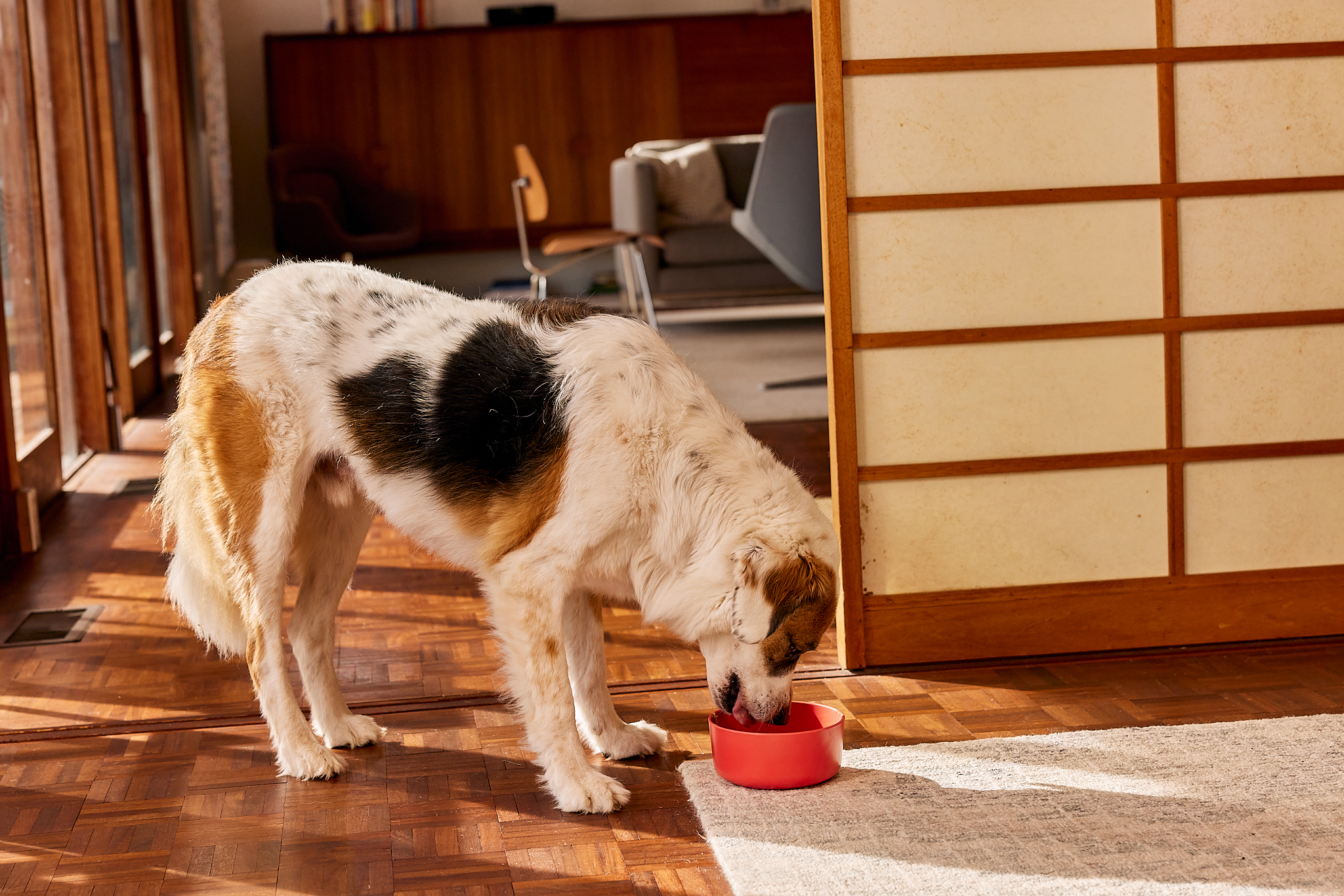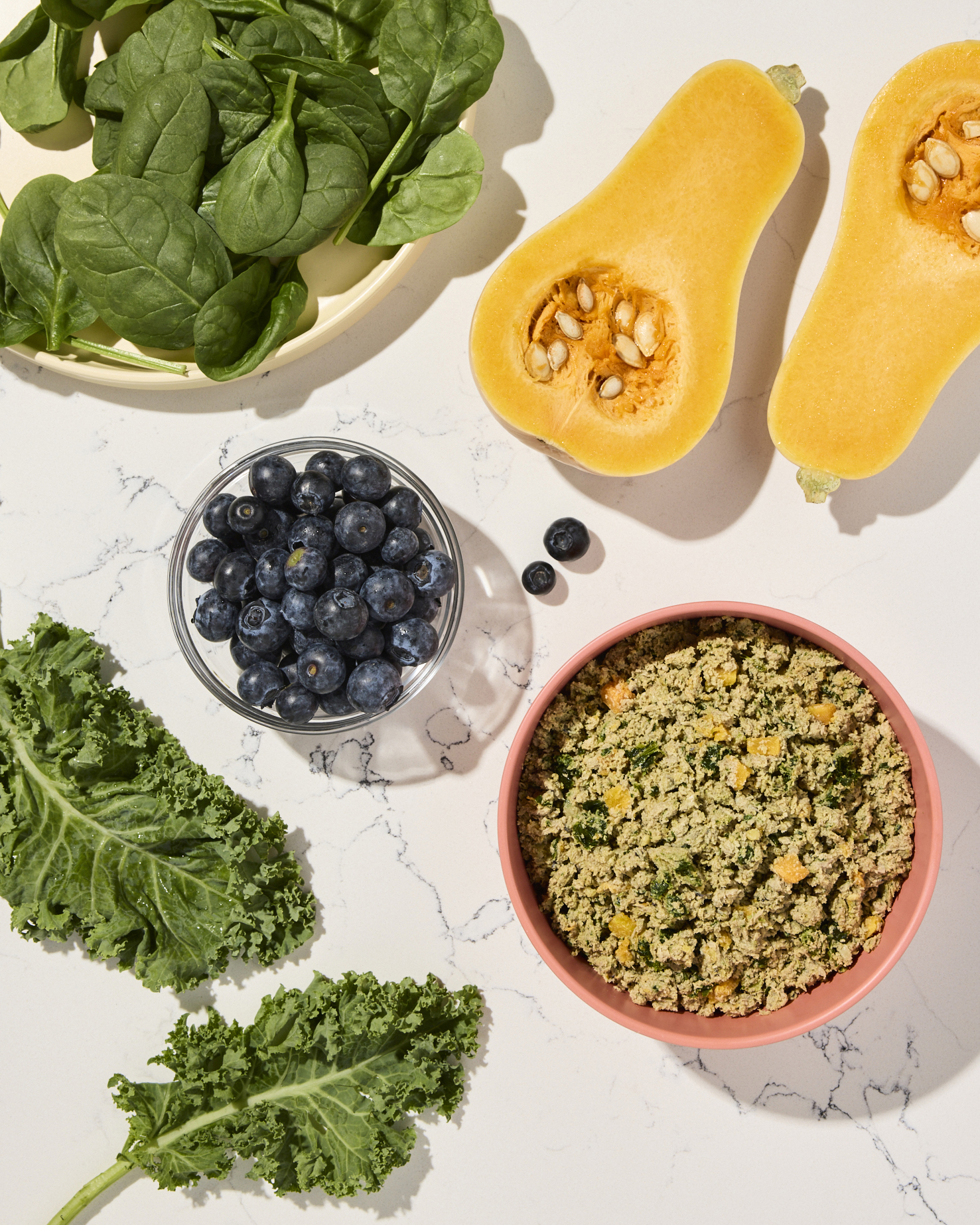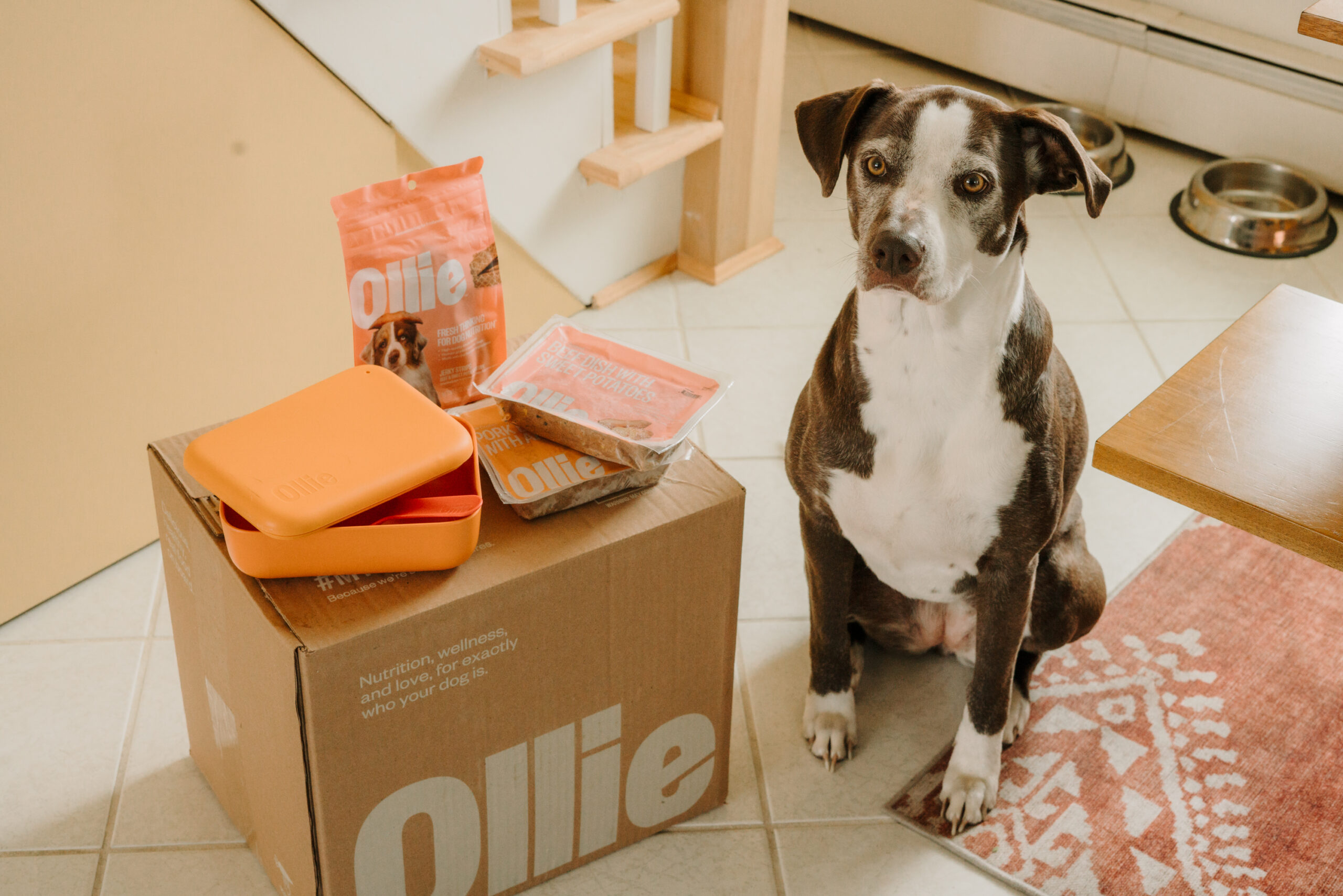Hey Ollie blog readers! We’re offering you an exclusive 60% OFF your starter box! Try now!
An occasional toot is usually tolerable, but if your pup is stinking up the place on a regular basis, the cause of their gassiness could be serious. “Malodorous flatulence indicates that something in the diet does not agree with the dog,” says Dr. Judy Morgan, a veterinarian at Clayton Veterinary Associates in New Jersey. “Most people laugh about [gas in dogs], but it really does signify something is wrong with [their] digestion.” If your canine companion can clear a room with one toot, check out Dr. Morgan’s top five causes for Fido’s flatulence and discover how you can help stop the stink.
Why Is My Dog So Gassy?
Below are 5 of the most common reasons for gassy dogs:
1. Your dog is eating an unhealthy diet
A dog’s diet is often the number one cause for gas. High-carbohydrate foods can be a culprit. “I never recommend dry kibble due to the high carbohydrate content and lack of moisture in the diet,” says Dr. Morgan. High-fiber or high-fat foods, including diets containing beans or dairy, can also be to blame, because dogs lack the necessary enzymes to break down these ingredients, resulting in fermentation and gas.
So, what soothes a gassy gut? Meat-based diets are a natural way to support healthy digestion because they’re loaded with enzymes. Additional toppers, such as organic, fat-free yogurt with active cultures, can further increase your pup’s microbiome or healthy gut bacteria. Finally, consider giving your pup a probiotic, “The good bacteria will help with normal digestion of food to keep the bowels healthy,” Dr. Morgan explains.
2. Your dog is genetically predisposed to gas
Unfortunately, some breeds are simply more prone to passing gas. Brachycephalic breeds (e.g, bulldogs, pugs, boxers) often swallow too much air while eating, and develop excess gas. In addition, bulldog breeds are prone to digestive issues, and according to Dr. Morgan, “do not do well on high-carbohydrate diets in general.”
Other frequently flatulent breeds include mastiffs, German shepherd dogs, and Labrador retrievers. Although you may be unable to outsmart mother nature, you can support these gassy guys and gals by ensuring they eat healthy, high-quality food and exercise regularly.
3. Your dog is overweight and under-exercised
Physical activity promotes healthy digestion by regulating intestinal motility (i.e., digested food moving through the intestines for absorption and elimination). Overweight and out-of-shape dogs tend to be more sedentary, resulting in an equally immobile gastrointestinal (GI) tract. Slow moving contents are more likely to ferment, creating uncomfortable gas buildup. “Exercise helps keep the bowel actively moving, which helps decrease gas production,” explains Dr. Morgan. So, grab your dog’s leash and get motivated. Fresher air is only a walk away!
Exercising Your Dog: Tips and Recommendations
4.. Your dog eats too fast
Some dogs treat mealtime as a competitive event. However, nobody wins when your malodorous mutt finishes their food faster than you can say, “Sit.” According to Dr. Morgan, “food gulping can cause dogs to swallow air, which can increase gas in the bowel.”
Calm your pup’s feeding frenzy with a slow-feeder bowl like this one, which is designed for more mindful eating. You can also try feeding your dog smaller, more frequent meals throughout the day. This simple method “allow[s] the food to pass through the bowel more consistently without having to digest a large volume at one time,” Dr. Morgan explains.
5. Your dog has an underlying health problem
Sometimes, gas can be a warning sign that your dog is suffering from a serious GI issue, such as food allergies or inflammatory bowel disease (IBD). According to Dr. Morgan, dangerous gas-causing conditions abound, including gastric dilatation and volvulus syndrome ([GDV] i.e., bloat). “While less common, excessive gas in the small bowel can lead to small bowel volvulus (i.e., twisting), which [can be] deadly.”
If you suspect that your pup is suffering from a major GI issue, make an appointment with your veterinarian. Seek emergency veterinary care if your dog’s gas is sudden and accompanied by unproductive vomiting, lethargy, and a pot-bellied appearance.
10 Signs You Need To Take Your Dog To The Vet
What can I give my dog for gas?
If your veterinarian rules out your dog’s underlying gassiness causes, such as diet or digestive disorders, they may recommend a medication to ease your pup’s discomfort and minimize their gas. These remedies may include prescription medications or over-the-counter (OTC) acid reducers to prevent gas buildup in the GI tract. In addition, your veterinarian may recommend your dog get some gentle exercise, such as short, regular walks. Always speak with your veterinarian before giving your dog any medication, including home remedies and OTC medications or supplements, as these may be contraindicated or may interact with other medications your pup may be taking.
How can Ollie’s fresh recipes help my pup’s excessive gas?
Digestive wellness begins in your dog’s food bowl. Fresh wholesome ingredients, such as those included in Ollie recipes, can soothe your pup’s sensitive digestive system, repair poor gut health, and build a foundation for future health through carefully selected ingredients and nutrition. Ollie recipes contain:
- Fresh meat protein — Our meat-based recipes (i.e., chicken, beef, turkey, and lamb) feature highly digestible protein and powerful enzymes for a healthy gut.
- Healthy fiber — Appropriate fiber levels regulate intestinal motility and promote healthy stools. Our recipes include nutritious fiber sources, such as kale, pumpkin, and carrots, which help your dog feel fuller longer, and potentially slow down rapid eaters.
- Complex carbohydrates — Healthy carbohydrates, such as sweet potato, rice, squash, and berries, provide nutritious energy, not empty calories.
- Moisture — Fresh foods contain natural moisture, which facilitates healthy digestion from tongue to tail.
- Immune-boosting antioxidants — Immune health is directly linked to gut health. Our antioxidant-rich superfood ingredients (e.g., blueberries, spinach) fight harmful free radicals, help accelerate repair and healing within your dog’s body, and help build your pup’s strong immune defense.
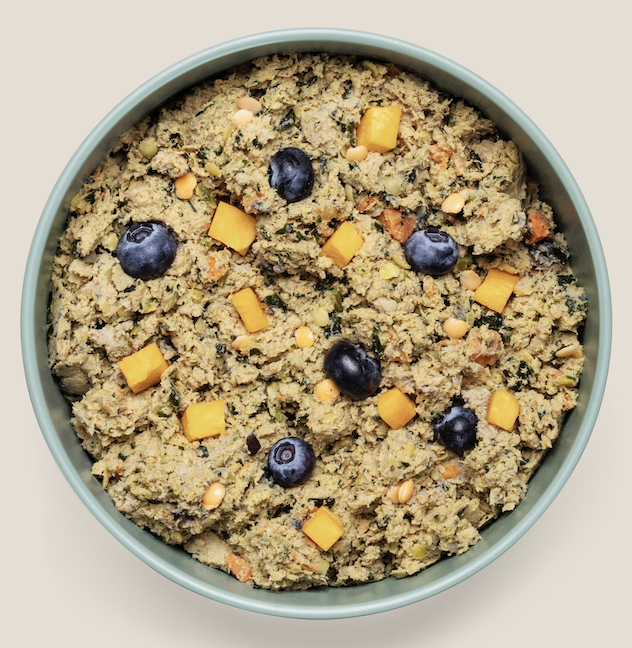

Find Out Which Recipe Plan is Right for Your Dog’s Needs
Get 60% of your first box of Ollie’s fresh
delivered meals today!
The Ollie blog is devoted to helping pet parents lead healthier lives with their pups. If you want to learn more about our fresh, human-grade food, check out MyOllie.com.
Tagged As:

The nutrition your dog needs,
the food they want.

Enjoying our articles? Subscribe our Newsletters and get new articles directly to your inbox
You might also like
4 June 2025
5 MINS READ
How Can Fresh Dog Food Help with Weight Management?
Maintaining a healthy weight is one of the most important aspects of your dog’s overall health and longevity. Being overweight or underweight can result in health complications and conditions that…
23 May 2025
5 MINS READ
Why Fresh Dog Food Makes Happier, Healthier Dogs That Live Longer
Every pup parent wants their dog to live a long, happy life, and the path to a healthier, happier dog starts with what’s in their bowl. Recent research and expert insights reveal that fresh dog …
by Ollie Pets
23 May 2025
8 MINS READ
Why Human-Grade Ingredients Matter for Dogs with Health Issues
For dogs with allergies, sensitive stomachs, or other health concerns, a higher quality of life starts with food made from higher quality ingredients. The right nutrition can make a significant di…
by Ollie Pets
